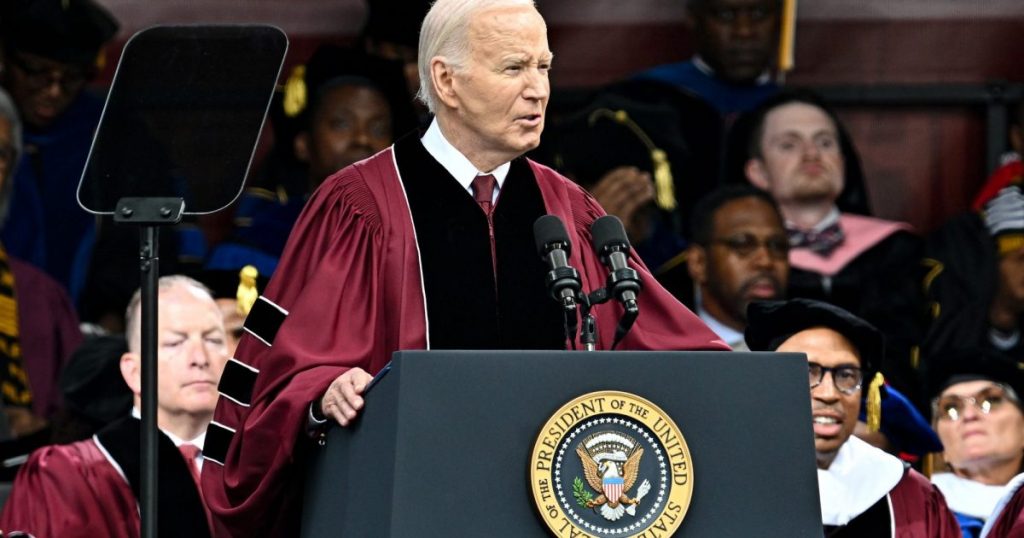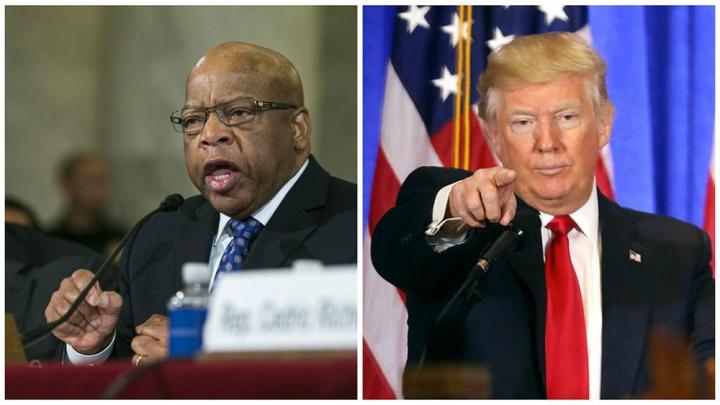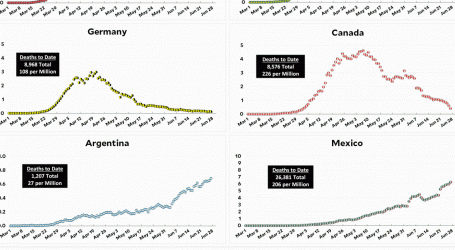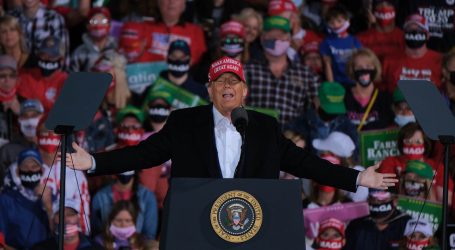Biden Celebrates Black Leadership While Navigating Gaza Crisis Tensions at HBCU Commencement
President Biden faced minimal disruptions from protesters during his Sunday commencement address at Morehouse College—though some speakers, including the valedictorian, mentioned the plight of Palestinians.Paras Griffin/WireImage/Getty
Fight disinformation: Sign up for the free Mother Jones Daily newsletter and follow the news that matters.For weeks preceding President Biden’s commencement speech on Sunday at Morehouse College—a historically Black men’s college in Atlanta—students and faculty opposed his appearance, alleging that the president should not be the guest of honor given his ongoing support for Israel’s war in Gaza.
As student protests swept through other colleges and universities, even forcing the cancellation or readjustment of commencement ceremonies, Morehouse students spoke to the press about their discomfort with Biden’s appearance. They confronted the school’s President, David Thomas, about his invitation to the president, and some members of the Morehouse faculty and others from Spelman and Clark Atlanta—two other historically Black colleges—demanded in an open, unsigned letter that administrators cancel his appearance, alleging that the school was “endorsing genocide” by having him speak.
I reported this week that the Biden administration has moved to send another $1 billion in weapons to Israel—even after the President told CNN that he would stop shipping certain weapons to Israel if Prime Minister Benjamin Netanyahu proceeded with a major ground invasion of Rafah. Despite this warning, Israeli forces have already begun the incursion, forcing an estimated 800,000 Palestinians to flee the area, according to the UN. Thomas told the Washington Post that administrators initially reached out to the White House in September about the possibility of Biden speaking, a month before the start of the Israel-Hamas war.
But commencement ceremonies and Biden’s appearance largely came and went without disruptive protests—though a couple of speakers did find ways to acknowledge the plight of Palestinians. In his opening evocation, Rev. Claybon Lea Jr. called for leaders to value “human life…whether they live in Israel or Palestine,” and said that Jesus Christ was a “Palestinian Jew.” (Biden is a devout Catholic.)
The valedictorian, DeAngelo Fletcher, used part of his address to call for an “immediate and permanent ceasefire in the Gaza Strip,” prompting applause from the audience—and Biden himself. Fletcher told NPR this week, “Biden has been on a tirade in the Middle East, giving billions and billions of dollars to foreign countries.”
#Morehouse valedictorian, Deangelo Fletcher, calls for an “immediate and permanent ceasefire in the Gaza Strip” — met with applause from crowd and @POTUS behind him. pic.twitter.com/jlckIGES8C
— Garrison Hayes (@garrison_hayes) May 19, 2024
Signals of opposition to Biden’s appearance were peaceful and relatively unobtrusive; the most unified one was when the entire graduating class remained seated when he took the podium. Several students in the audience appeared to wear keffiyehs, some sat with their backs turned to Biden, and another student appeared to be holding up a Palestinian flag.
During his remarks, Biden acknowledged what he described as the “humanitarian crisis” in Gaza and called for an “immediate ceasefire,” to “stop the fighting and bring the hostages home.” He also addressed the scale of protests against the war on college campuses, saying, “I support peaceful nonviolent protest. Your voices should be heard. And I promise you I hear them.” Noting that he is working towards “two-state solution…the only solution,” Biden said, “I know [the war] angers and frustrates many of you, including my family. But most of all, I know it breaks your heart. It breaks mine as well.” He was likely referring to reports that First Lady Jill Biden has urged him to “stop it now.”
The President spoke vehemently against racism and showcased his track record supporting the interests of Black voters, with whom his support has recently eroded. While Biden retains an advantage over Trump with Black voters overall, a Washington Post/Ipsos poll published last month found that 55 percent of Black Americans under 30 years old disapprove of his job performance; in contrast, a year ago, 56 percent of that group approved of Biden.
“You started college just as George Floyd was murdered, and there was a reckoning on race,” Biden told the graduates, before later condemning “the poison of white supremacy.”
“Instead of forcing you to prove you’re ten times better, we’re breaking down doors so you have 100 times more opportunities,” he added, touting the more than $16 billion his administration has allocated to HBCUs. He noted his history of supporting Black leadership, and said many Morehouse graduates now worked in his administration. He reminded his audience of his role as vice president to the first Black president; his naming of a Black woman as his vice president; and his appointment of the first Black woman to be a Supreme Court Justice.
But whether these statistics—and Biden’s long history of supporting Black leaders—will be enough to swing the hotly contested election in his favor remains to be seen. A Carnegie poll released last month found that 59 percent of Black Americans believe US should restrict military aid to Israel to ensure that American weapons are being used in alignment with international human rights law, and that the number of Black Americans who reported feeling connected with the plight of Palestinians grew from 32 percent in October 2023 to 45 percent in March.





